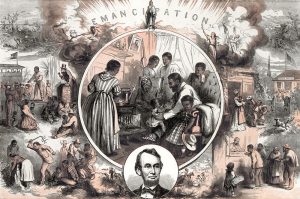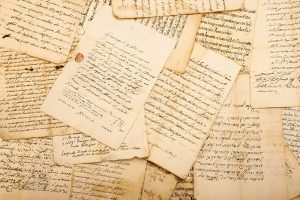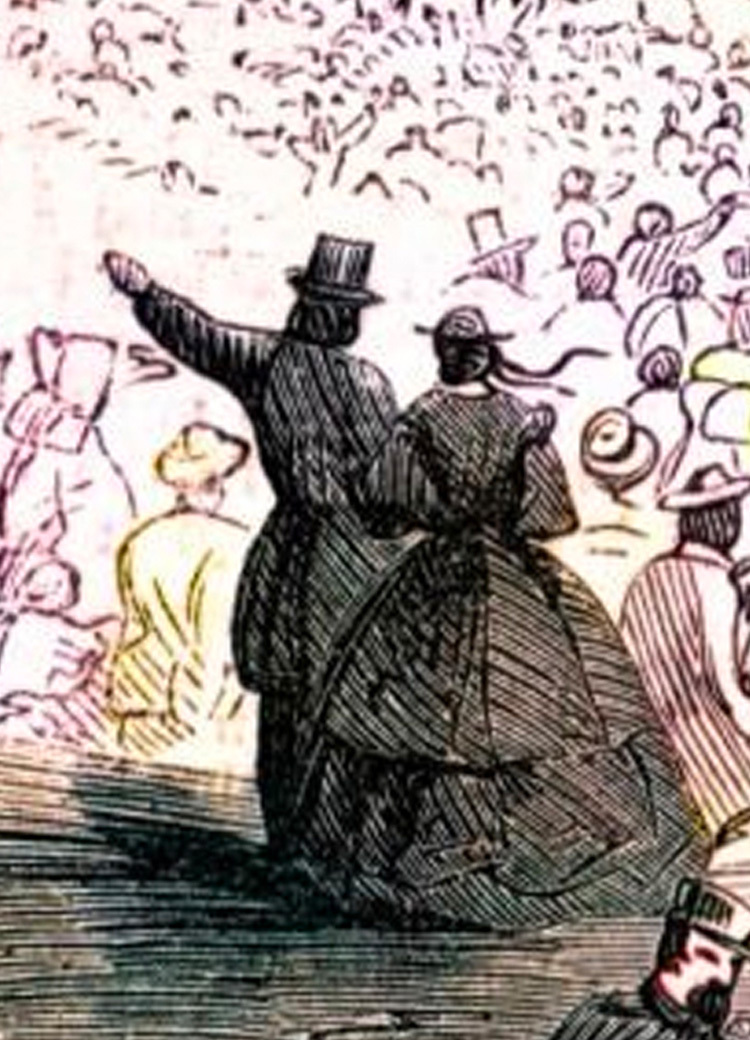Freedom: A Documentary History of Emancipation
Content
 President Harry S. Truman declared February 1, 1948, and every February 1st thereafter, as Freedom Day to commemorate President Abraham Lincoln approving the Joint Resolution of Congress to send the Thirteenth Amendment to abolish slavery to the states for ratification. Three fourths of the states ratified the amendment by December 6, 1865. That is the official history, but more importantly, who were the newly freed African Americans and the displaced white Southerners, and what were their stories? The library's Baker Genealogy Center has a wonderful source for researching your family from Emancipation and Reconstruction through 1872. Freedom: A Documentary History of Emancipation 1861-1867 is a superb series of books you can use to research your ancestors. Within the pages you will find letters, and documents that shine light on post-Civil War America. The Freedmen's Bureau was established to assist these people and Freedom gives you access to that time period. Here is a brief history of the Freedmen's Bureau, and the efforts to preserve the documents and make them accessible for everyone to research.
President Harry S. Truman declared February 1, 1948, and every February 1st thereafter, as Freedom Day to commemorate President Abraham Lincoln approving the Joint Resolution of Congress to send the Thirteenth Amendment to abolish slavery to the states for ratification. Three fourths of the states ratified the amendment by December 6, 1865. That is the official history, but more importantly, who were the newly freed African Americans and the displaced white Southerners, and what were their stories? The library's Baker Genealogy Center has a wonderful source for researching your family from Emancipation and Reconstruction through 1872. Freedom: A Documentary History of Emancipation 1861-1867 is a superb series of books you can use to research your ancestors. Within the pages you will find letters, and documents that shine light on post-Civil War America. The Freedmen's Bureau was established to assist these people and Freedom gives you access to that time period. Here is a brief history of the Freedmen's Bureau, and the efforts to preserve the documents and make them accessible for everyone to research.
Creation of the Freedmen's Bureau
During the Civil War, private freedmen aid societies urged President Abraham Lincoln and Congress to immediately create an emancipation bureau to aid the formerly enslaved. They said it was not enough for the government to free the slaves, the government had the obligation to assist them to establish free lives. The aid societies said only the government had the resources to help the large numbers of newly freed people. 1
On March 3, 1865, Congress passed The Bureau of Refugees, Freedmen, and Abandoned Lands act to provide food, shelter, clothing medical services, and land to displaced white Southerners and newly freed African Americans. The Freedmen's Bureau was to operate during the war and for one year after. The Bureau investigated letters and documents seeking action and redress of wrongdoing and assistance to establish a new life. In January 1866 Congress passed a bill to extend the deadline but it took two attempts before Congress was able to override President Andrew Johnson's veto. The new legislation gave the Freedmen's Bureau an additional two years to operate. Most of the work of the Freedmen's Bureau was from June 1865 to December 1868. 2
The act was abolished in 1872 due to lack of funding and deeply held racist attitudes.3
Documenting destruction of slavery & transition to freedom
All the documents related the the Bureau, and there are millions of them, were kept in the National Archives. These documents are an important source of information as they contain the names of millions of newly freed people and displaced Southern whitesIn 1976, Ira Berlin, and the Freedmen and Southern Society Project began a systematic search of these records to document the destruction of slavery and the transition to freedom. Out of this research came the multi volume set Freedom: A Documentary History of Emancipation 1861-1867 edited by Ira Berlin, et al. Titles of some of the volumes are The Destruction of Slavery, The Wartime Genesis of Free Labor, The Black Military Experience and Land Labor. These volumes give you, the researcher, the ability to search for names, places and events. You will read first person narratives and have access to primary sources covering emancipation into the reconstruction period. You'll find marriage records and military records for black soldiers and sailors. The records document conditions in different locales, including abandoned or confiscated lands, crime, schools, hospitals and labor.
Saving, transcribing & indexing
When Berlin started the project, there were no name indexes and no easy way to search them. The documents were very fragile and there was a move to discard them. A librarian with the the National Archives (NARA), Reginald Washington, worked in conjunction with Family Search to save them. Congress passed the Freedmen's Bureau Preservation Act of 2000 and it was signed into law by President Bill Clinton. The act authorized $3 million to preserve and make the documents accessible to the public.4
NARA microfilmed the documents and then made them available to Family Search and the National Museum of African American History and Culture (NMAACH) to transcribe and digitize the documents. Next, Family Search, in conjunction with NMAAHC, the Afro-American Historical and Genealogical Society and the California African American Museum worked to index millions of names from the Freedmen's Bureau records. NMAAHC continues the work to index the documents for full text searching. The goal is to make these accessible to everyone.
Personal stories of freed people
 In addition to the volumes geared to researchers, Berlin and others edited books for the general reader. One of these books is Families & Freedom. You can search the index of the book for names, places, laws and other subjects. This book is full of letters, many that describe in poignant detail freed people trying to reunite with their families. Hawkins Wilson who was sold away from his family when he was in his teens wrote one of these letters. Twenty-four years later, he wrote the Freedmen's Bureau hoping to reunite with his sisters. He also included letters written directly to his sisters in hopes they might contact the Bureau too and find contact information about him. To his sister Jane, Wilson wrote:
In addition to the volumes geared to researchers, Berlin and others edited books for the general reader. One of these books is Families & Freedom. You can search the index of the book for names, places, laws and other subjects. This book is full of letters, many that describe in poignant detail freed people trying to reunite with their families. Hawkins Wilson who was sold away from his family when he was in his teens wrote one of these letters. Twenty-four years later, he wrote the Freedmen's Bureau hoping to reunite with his sisters. He also included letters written directly to his sisters in hopes they might contact the Bureau too and find contact information about him. To his sister Jane, Wilson wrote:
Your little brother Hawkins is trying to find out where you are and where his poor old mother is. Let me know and I will come to see you. I shall never forget the bag of biscuits you made for me the last night I spent with you. Your advice to me to meet you in Heaven has never passed from my mind and I have endeavored to live as near to my God, that if He saw fit not to suffer us to meet on earth, we might indeed meet in Heaven.
Wilson goes on to tell her he is married, he has learned to read and he teaches Sunday School. He asks to be remembered to old friends and for her direction so he can visit. The letters are heartbreaking, but they also give details of their lives, that bring the writers to life.5
More research on this topic
- Publications of the Freedmen and Southern Society Project
- The Freedmen's Bureau | National Archives
- Freedmen's Bureau Field Office Records
- Freedmen's Bureau Search Portal | National Museum of African American History and Culture (si.edu)
- H.R.5157 - 106th Congress (1999-2000): Freedmen's Bureau Records Preservation Act of 2000 | Congress.gov | Library of Congress
- The Freedmen's Bureau Preservation Project | National Archives
- United States Freedmen's Bureau, Records of Freedmen, 1865-1872 • FamilySearch














